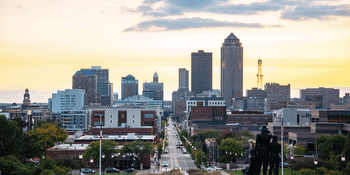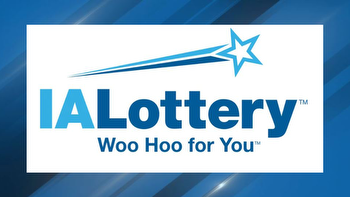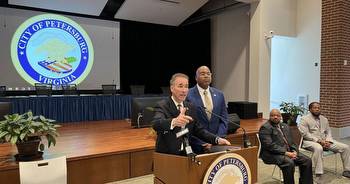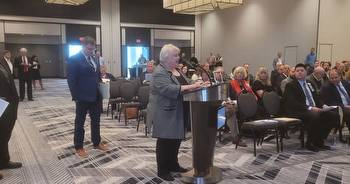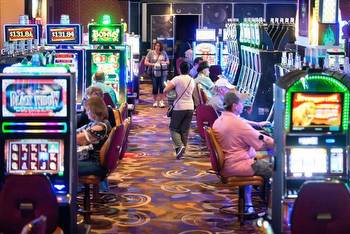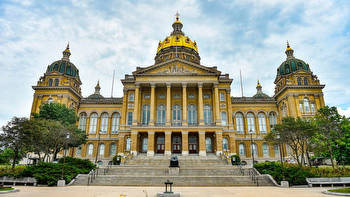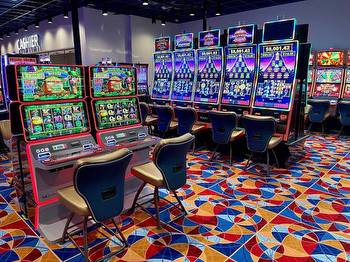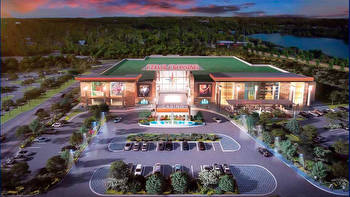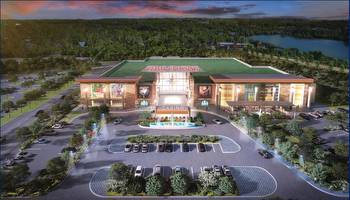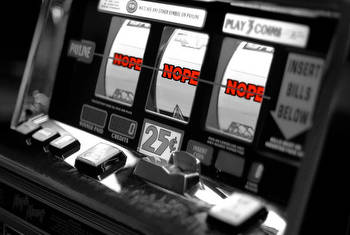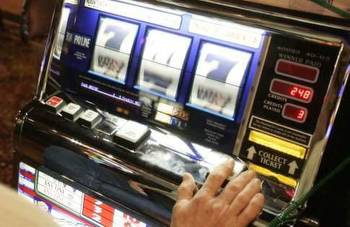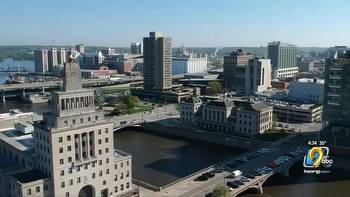Linn County will vote on a gambling referendum Tuesday. The outcome could have impacts statewide

Linn County residents once again have the chance to weigh in on whether gambling should be allowed in the community. The referendum on the ballot Tuesday could have implications for communities across the state that rely on revenues from existing casinos.
The gambling industry has grown significantly in Iowa since lawmakers opened the door for games of chance almost 50 years ago.
From the Quad Cities to Emmetsburg to Council Bluffs, Iowans get to press their luck at slot machines and roulette tables. But the state’s second largest city, Cedar Rapids, still doesn’t have its own casino.
Tuesday’s referendum is the latest step in the county’s years-long saga of trying to get a casino.
Back in 2013, Linn County voted overwhelmingly to authorize gambling. If this measure is approved, that permission would be made permanent.
Jonathan Swain of Peninsula Pacific Entertainment says this is a significant opportunity for the community. It’s also one he would benefit from.
His company plans to build a casino in downtown Cedar Rapids, if voters and state regulators OK it.
"You're probably talking about 550 to 600 real jobs, full time jobs paying medical benefits to all the employees. So significant salary package and benefit package for them," Swain said. "And then also we look at lifestyle, especially for young people that are looking for something to do in this community."
Anne Parmley of the Linn County Gaming Association says advocates are feeling confident, especially after the referendum in 2013 passed by a double digit margin. Unlike eight years ago, there’s no organized opposition against the measure.
And the casino developers have promised to share 8 percent of their revenues with nonprofits, more than double the rate that the state requires. Parmley says that presents a huge philanthropic opportunity for the county.
"We just want voters to understand what kind of impact those millions of dollars could have on Linn County and our nonprofits, especially considering a lot are really struggling post-pandemic and after the derecho," Parmley said.
But advocates recognize that the biggest hurdle likely isn’t voters: it’s the Iowa Racing and Gaming Commission. That’s the board that closely regulates the state’s gambling industry and decides whether a casino can be built and where.
Twotimes in recent years, the commission has voted to block casinos in Cedar Rapids, due to concerns the developments would cannibalize revenue from the state’s other operations.
"My research shows there’s a great deal of cannibalization from other casinos in the state," said Ernie Goss, an economics professor at Creighton University in Omaha.
Goss has analyzed Iowa’s gambling operations and has written a book on the industry in the U.S. He says that Iowa’s market is more or less saturated.
"I would argue that in terms of Iowa, that there are some limits and you are definitely approaching the limits of how much benefits can come from an additional casino," Goss said.
Goss says a new casino in Cedar Rapids would likely siphon off customers and millions of dollars in revenue from nearby operations, like in Riverside.
On a recent drizzly Thursday evening outside the Riverside Casino & Golf Resort, a quick survey of the parking lot showed plenty of cars with license plates from Washington County, but also from nearby Johnson, Linn, Iowa and Jackson Counties. Some visitors came from as far away as Illinois and Minnesota.
Analysts predict that if a casino were to be built in Cedar Rapids, some of those gamblers would cut down on their driving time and go there instead, and take their money with them.
"We have quite a few out-of-county vehicles that are in our parking lots up there at the casino and we’re aware of that," acknowledgedShawn Ellingson, president of the Washington County Riverboat Foundation, the group that doles out revenues from the Riverside Casino to nonprofits.
Ellingson says if Cedar Rapids gets a casino, the foundation will adjust. But he does worry about projects that may not get funding if Riverside’s earnings take a hit.
"It does bother me a little bit. I would hope that if it did pass, that Linn County would be as generous with outside organizations as we have been," Ellingson said. "During the derecho we sent hundreds of thousands of dollars to Linn County to help with the rebuilding of that."
Goss predicts that if Cedar Rapids gets a casino, average revenues across the state will go down, even if the site attracts new gamblers.
After voters weigh in, ultimately the decision will be up to the Iowa Racing and Gaming Commission, which has a whole new slate of members since the board last weighed in on a Cedar Rapids casino.








